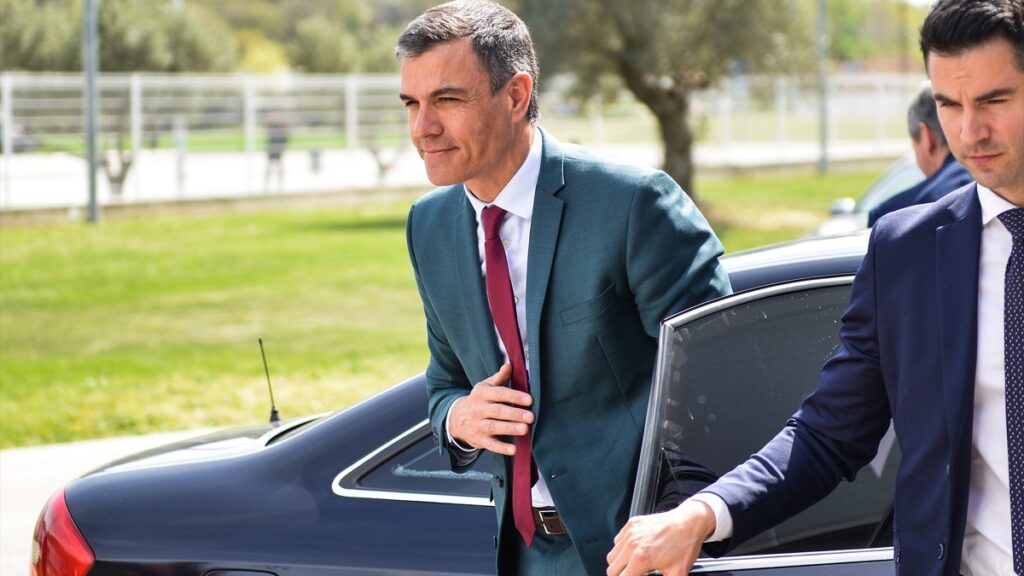
Pedro Sanchez He has achieved one of the ‘dreams’ of every candidate for Moncloa. The most important ministers of the European Union, of one ideology or another, will take a photo with him and his Government throughout the Spanish geography before the general elections. An achievement that he achieves thanks to the fact that Spain assumes the Rotating Presidency of the Council of the European Uniona mandate that allows to convene and control the agenda of the European Council.
And the current president of the Government is going to take advantage of it. SwedenSpain’s predecessor in this presidency, has convened 13 informal tips in the first six months of 2023. A figure that is practically half of the plan of Spain. Sánchez’s team has summoned the ministers of the member countries to a total of 25 informal tips.
It’s not just the number. The Swedish presidency has facilitated the organization of these informal councils by concentrating all in its capital, Stockholmand with all the agenda developed in the Scandinavian XPO, a convention center a seven-minute drive from the airport. The central government has only awarded one event to Madrid and has distributed the remaining 24 events throughout Spain, some like Cáceres or Toledo without an airport.
A dispersion that, as some of the organizers explain to Vozpopuli, causes great logistical and security challenges, both for local representatives and visitors. These trips invite 27 delegations, one for each country, who accompany the minister on duty. In addition, a team from Moncloa, the ministry that acts as ‘cicerone’, and representatives of both the European Commission office in Madrid and officials from Brussels are traveling.
Not forgetting the press. Pedro Sánchez’s team is in charge of managing the hundreds of requests to cover these informal tips both with the national and international mediawhere some have correspondents based in Madrid and others travel from Brussels to monitor these intense days.
The agenda of these councils starts with a day of fishing in Vigo on July 3 and 4. The last scheduled informal meeting is on November 24 in Pamplona to address equality issues. in between, Valladolid will bring together the energy ministers of the European Union in the midst of the energy crisis and Murcia will receive the European representatives in September to address ‘general affairs’.
What is Sanchez looking for?
Spanish and community officials see infrastructures as Ifema in Madrid or the Fira in Barcelona as more efficient alternatives to concentrate these events, similar to what has happened in Stockholm in the first semester. The general elections and the commitment of the central government to decentralize the institutions are the main arguments on which this strategy of both increasing councils and dispersing is based.
The European agenda will give Pedro Sánchez a leading role in the second half of the year, with general elections in Spain for the month of December. And the 25 councils in Spain will not be the only ones. Under the Treaty on European Union, Union officers meet at least four times a year, usually in March, June, October and December. These meetings, often called ‘European Union summits’, are held in Brussels in the ‘Europa building’.
Those are the official tips. In parallel, the members of the European Council meet informally to exchange views, in a timely manner, on issues that affect European society. Although these meetings are not used to make formal decisions. European regulations allow these informal meetings to be held in Brussels or in the country that holds the rotating Presidency of the Council of the European Union. As the Government of Pedro Sánchez has decided.
And, with all this activity, the government led by Pedro Sánchez may have more opportunities to meet. If they produce exceptional circumstances that require the adoption of urgent decisions by the leaders, the President may convene extraordinary meetings of the European Council in Brussels. With the war in Russia raging, it seems inevitable that European leaders will take these emergency meetings for granted on their jam-packed European agenda in the second half of 2023.









